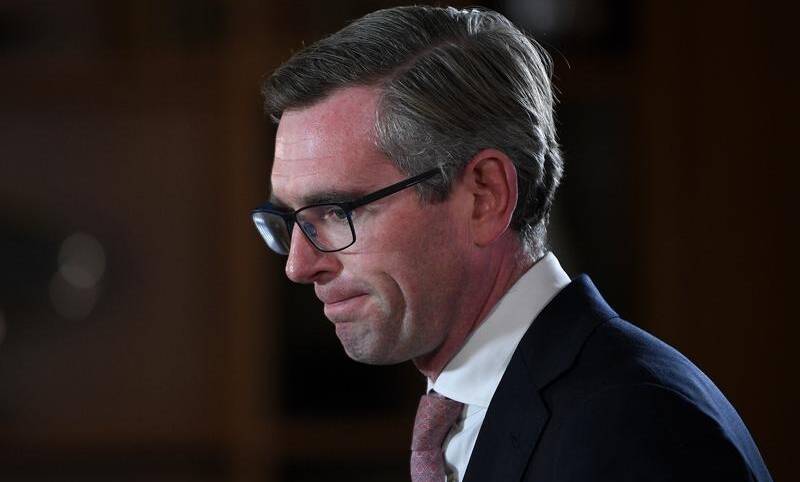
You are free to believe whatever you want in private. But in public you have to believe what I believe.
Subscribe now for unlimited access.
$0/
(min cost $0)
or signup to continue reading
I was surprised last Friday to hear news that Gladys Berejiklian was resigning as Premier. I was not surprised when media attention quickly fixated upon the question of who might replace her. It is, after all, a very important question.
Nor was I surprised by what the media fixated upon when reporting on Dominic Perrottet as the frontrunner for the job. From this reporting, I know very little about Perrottet's experience, his achievements in government or the policies he has championed as Treasurer.
What the reporting has made clear is that he holds traditional Roman Catholic beliefs and that this makes him a dangerous potential Premier.
This style of reporting was typified in an article by The Reverend Dr Stephanie Dowrick published in The Sydney Morning Herald.
Dowrick is an 'Interfaith minister', a role which she describes on her website as involving "an acknowledgment that there are many ways to seek meaning."
Yet despite her apparent open-mindedness, Dowrick sees no place in public life for the influence of 'fundamentalists'.
"Fundamentalist thinking," Dowrick writes is "highly divisive. The world consists of 'us' - and the rest of you. High levels of conformity are demanded".
So what is this fundamentalism which is so dangerous? It seems that it is anything which might disagree with Dowrick's own very socially progressive, secular humanist beliefs. Dominic Perrottet and Scott Morrison are held up as examples of dangerous fundamentalism precisely because she imagines that their beliefs might endanger the kind of policy she champions on key issues.
The solution to this danger? The apparently "growing representation of highly conservative Christians in positions of great power" needs "to be contained in Australia" starting with the NSW Liberals not electing Dominic Perrottet as Premier.
Of course, the religious convictions of anyone seeking public office are fair game for discussion and Dowrick is more than entitled to voice her opinion. Yet her argument is rank hypocrisy.
She dogmatically holds her beliefs, formed by a certain understanding of God and the world.
She then insists that others keep their convictions out of public life while insisting that her convictions inform the direction of government policy.
In doing this she creates the same 'us vs them" dynamic of which she is critical, in which the only acceptable outcome is to limit the influence of the 'them'.
This is typical a common manner of public argument which is often used to counter conservative Christian voices: "You are free to believe whatever you want in private. But in public you must believe what I believe."
However, as a Christian I am not ashamed to say that my beliefs inform the way that I interact with the world, the way I vote, or the political statements which I might make in whatever public setting I might choose to make them.
It is impossible for any of us not to take our convictions about the nature of the world, or the nature of right and wrong into the the public sphere. And I am thankful for the overwhelmingly positive impact Christians have had when their private convictions have lead to public action.
I am thankful that it was a devout Christian in William Wilberforce who was the prime force in the abolition of the slave trade in England.
I am thankful that for charities such as World Vision, Compassion, the Red Cross, and the Salvation Army, all of which were started by Christians.
I am thankful when my job allows me hear countless little stories from our own town of Christians showing self-sacrificial love and generosity and care to others precisely because their private faith is also a public faith.
For the Christian, what we believe in private will always be what we believe, and what motivates how we act, in public.

